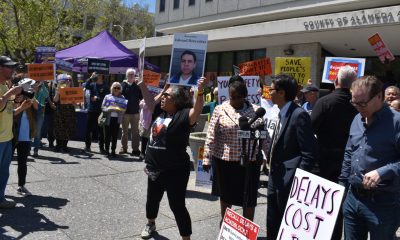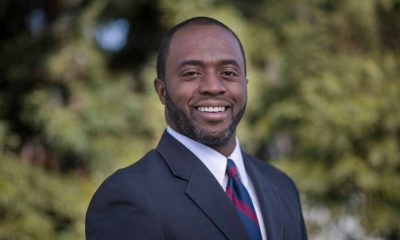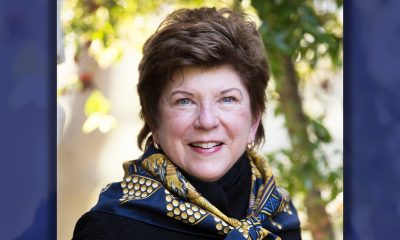Activism
Advocates Pressure Gov. Newsom to Fund Health Equity, Racial Justice in Final Budget
“Our state boasts a staggering $97 billion budget surplus,” said Ron Coleman, managing director of the California Pan-Ethnic Health Network. “If not now, when? Given the devastating impact of racism on the health and well-being of Californians of color it’s a travesty of the highest order that racial justice isn’t even mentioned in the Governor’s budget proposal,”

By Edward Henderson, California Black Media
On June 8, community leaders, public health advocates and racial justice groups convened for a virtual press event to urge Gov. Gavin Newsom to support the Health Equity and Racial Justice Fund (HERJ Fund).
The initiative supports community-based organizations addressing the underlying social, environmental and economic factors that limit people’s opportunities to be healthy — such as poverty, violence and trauma, environmental hazards, and access to affordable housing and healthy food. Health advocates would also address longstanding California problems related to health equity and racial justice problems.
The fund cleared a significant hurdle last week when the state Legislature included $75 million in their joint budget proposal. This means both the Assembly and Senate support the HERJ Fund and they will go into negotiations with the governor to seek his support to approve it.
“Our state boasts a staggering $97 billion budget surplus,” said Ron Coleman, managing director of the California Pan-Ethnic Health Network. “If not now, when? Given the devastating impact of racism on the health and well-being of Californians of color it’s a travesty of the highest order that racial justice isn’t even mentioned in the Governor’s budget proposal,”
Last Wednesday’s virtual community meeting and press event capped off a series of rallies held by supporters in cities across the state calling on Newsom to make room in his budget for the HERJ Fund.
Coleman facilitated the online event featuring representatives from service organizations speaking about their support for the fund and presenting plans for how the money would be used to support their shared mission of providing services to minority and underserved communities in California.
Jenedra Sykes, a partner at Arboreta Group, spoke about inequalities that exist in funding for smaller grassroots nonprofits and how traditionally larger, white-led nonprofits use state funds to subcontract with grassroots nonprofits to provide services to communities of color at lower costs.
“The faith-based non-profits on the ground have the relationships, the access to those who are most vulnerable and marginalized among us who disproportionately have poorer health outcomes,” said Sykes. “This bill also evens the playing field a bit. Instead of going through the middleman of the established larger non-profits, funding will go directly to the people who are doing the work. The passion, the heart, the skills, the talents are there. It’s about the resources to fund these talents”
Coleman gave attendees an update on the status of the HERJ Fund’s path to inclusion in the state budget.
Now that the state Legislature has included the fund in their spending proposal for Fiscal Year 2022-23 (it was not included in Newsom’s “May Revise”), it must survive negotiations with the governor’s office before the June 15 deadline to finalize the budget.
A final budget needs to be in place by June 30, the last day for the governor to approve.
HERJ Fund supporters remain hopeful that funding for their program will be included in the final budget.
Updated mechanisms about the budget were added to the HERJ Fund’s proposal to alleviate those concerns and supporters of the fund believe that Newsom is out of excuses.
“Our best shot at getting the HERJ Fund in the budget is now. We are hoping that all of you will keep the pressure on the governor to ensure that this becomes a reality,” Coleman said. “If he does care about the intersections of health equity and racial justice then we will see funding.”
Attendees were encouraged to contact the governor’s office and the Legislature to keep the pressure on them to include the fund. You can visit herjfund.org to learn more about the proposal and the effort to include it in the state budget.
Nadia Kean-Ayub, executive director of Rainbow Spaces, shared details about the valuable events and services community-based non-profits provide. She said there is no shortage of families in need who want to participate in their organizations’ programs but, due to limited funding for transportation, many people never access services meant to help them.
“This tells me that when things are created in our communities, they are not making the impact we need in our Black, Brown and API communities,” Kean-Ayub said. “I will continue to fight. To really make this grow, we need the state to understand that the true impact comes from the community and the people who are living these issues and who know how to help them.”
Activism
Calif. Anti-Sex Trafficking Advocates Discuss Competing Bills, Strategies
Advocates from across California are challenging state officials and community leaders to support legislation that provides resources and services for survivors and victims of human trafficking, as well as assistance as they transition back into civil society. Some of those advocates are also calling for more effective state policy to curtail trafficking, a crime that has an outsized impact on Black children, particularly girls.
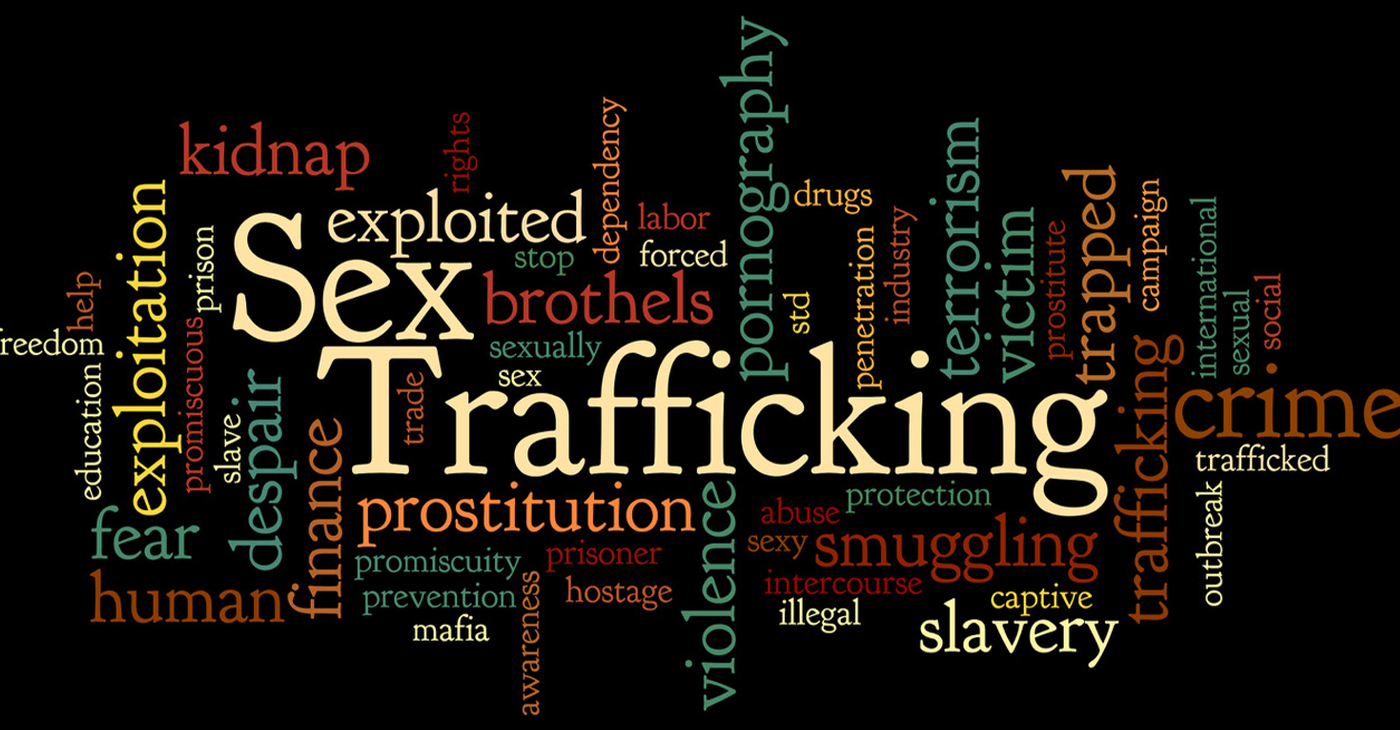
By Bo Tefu, California Black Media
Advocates from across California are challenging state officials and community leaders to support legislation that provides resources and services for survivors and victims of human trafficking, as well as assistance as they transition back into civil society.
Some of those advocates are also calling for more effective state policy to curtail trafficking, a crime that has an outsized impact on Black children, particularly girls.
According to the FBI, a report covering a two-year period found Black children accounted for 57% of all juvenile arrests for prostitution. In addition, 40% of sex trafficking victims were Black and 60% of those victims had been enrolled in the foster care system.
“It is time to hold the perpetrators who take advantage of our children accountable,” said the Rev. Shane Harris, a San Diego-based activist, former foster youth and founder of the Peoples Association of Justice Advocates, (PAJA), a national civil rights organization and policy think tank.
“It is time to send a thorough message that if you seek to buy a child for sex, you will pay the highest criminal penalties in this state,” added Harris who was speaking at a rally at the State Capitol earlier this month. Harris was speaking in support of Senate Bill 1414, authored by Sen. Shannon Grove (D-Bakersfield), which calls for people who buy sex from minors to be punished with a felony. The punishment includes a two-year prison sentence and a $25,000 fine.
Harris said the PAJA is the only civil rights organization in the state that supports SB 1414.
Harris urged other Black-led groups who favor anti-trafficking legislation more focused on criminal justice reforms (as opposed to stiffer penalties), to “join the movement.”
Many of those civil rights groups fear that SB 1414 could lead to the incarceration of more Black youth.
Those sentiments were echoed in a panel discussion organized by Black women advocates on April 26 to examine the cause and effects of human trafficking in California’s Black communities. The virtual event was hosted by the Forgotten Children, Inc, a faith-based nonprofit that advocates for survivors and victims of human trafficking through anti-trafficking campaigns and initiatives.
Panelists shared the psychological impact of sexual exploitation on youth and children in the long term.
Author and educator Dr. Stephany Powell shared statistics and information revealing that African American women and girls are the most trafficked nationwide.
Powell, who serves as the senior advisor on law enforcement and policy at the National Center on Sexual Exploitation said that national data indicates that sex trade survivors are disproportionately women of color. She stated that male survivors often go unnoticed because boys rarely report trafficked crimes.
Powell said that decriminalizing prostitution in California could increase human trafficking. She argued that Senate Bill 357, authored by Sen. Scott Wiener (D-San Francisco), which was signed into law in 2022 and legalized loitering for prostitution, caused a surge in street-level prostitution.
Panelist and psychologist Dr. Gloria Morrow shared opposing views on decriminalizing prostitution. She said that decriminalizing prostitution could help survivors gain access to state resources and support.
Despite opposing views, Powell and Morrow agree that the Black community needs resources and educational programs to address human trafficking.
Activism
Obituary: Social Justice Leader, the Rev. Cecil Williams, Passes at 94
On April 22, community leader and social justice advocate Reverend Cecil Williams died at his home in San Francisco surrounded by his loved ones, according to his family. He was 94 years old.
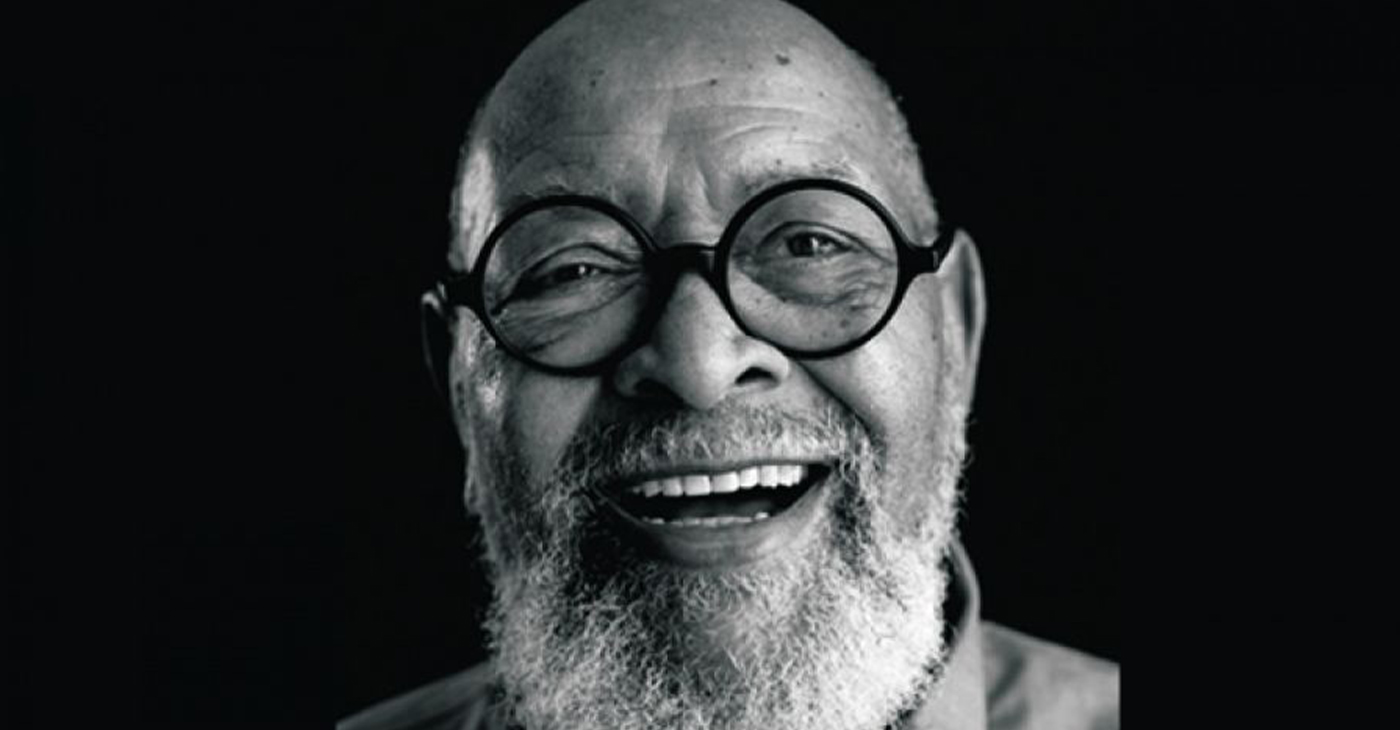
By California Black Media
On April 22, community leader and social justice advocate Reverend Cecil Williams died at his home in San Francisco surrounded by his loved ones, according to his family.
He was 94 years old.
The reverend was a civil rights leader who advocated for the equal rights of lesbian, gay, bisexual, transgender, and queer people in the Bay Area.
Williams was the head pastor of the non-denominational GLIDE Memorial United Methodist Church. The church welcomed individuals from the queer community and people struggling with homelessness, housing instability and substance use disorder (SUD).
Through his work, Rev. Williams attracted national attention. Prominent political and cultural leaders such as Maya Angelou, Bono, Oprah Winfrey, and Bill Clinton all attended church services at Glide.
Congressmember Barbara Lee (D-CA-12) said she is deeply saddened about the passing of her dear friend.
“The Reverend changed the lives of millions through radical love, support, inclusivity, and a commitment to service to the most marginalized,” Lee said.
Gov. Gavin Newsom said that the reverend inspired people across California to embody the values of generosity and acceptance.
Rev. Williams was, “a visionary leader whose legendary compassion and love for his community transformed the lives of people from all walks of life,” Newsom said.
Rev. Williams served as the chief executive officer of the Glide Foundation until his retirement in 2023.
Activism
Oakland Post: Week of May 1 – 7, 2024
The printed Weekly Edition of the Oakland Post: Week of May 1 – 7, 2024

To enlarge your view of this issue, use the slider, magnifying glass icon or full page icon in the lower right corner of the browser window. ![]()
-

 Community2 weeks ago
Community2 weeks agoFinancial Assistance Bill for Descendants of Enslaved Persons to Help Them Purchase, Own, or Maintain a Home
-

 Activism4 weeks ago
Activism4 weeks agoOakland Post: Week of April 3 – 6, 2024
-

 Business3 weeks ago
Business3 weeks agoV.P. Kamala Harris: Americans With Criminal Records Will Soon Be Eligible for SBA Loans
-

 Activism3 weeks ago
Activism3 weeks agoOakland Post: Week of April 10 – 16, 2024
-

 Community3 weeks ago
Community3 weeks agoAG Bonta Says Oakland School Leaders Should Comply with State Laws to Avoid ‘Disparate Harm’ When Closing or Merging Schools
-

 Community2 weeks ago
Community2 weeks agoOakland WNBA Player to be Inducted Into Hall of Fame
-

 Community2 weeks ago
Community2 weeks agoRichmond Nonprofit Helps Ex-Felons Get Back on Their Feet
-

 Community2 weeks ago
Community2 weeks agoRPAL to Rename Technology Center for Retired Police Captain Arthur Lee Johnson

